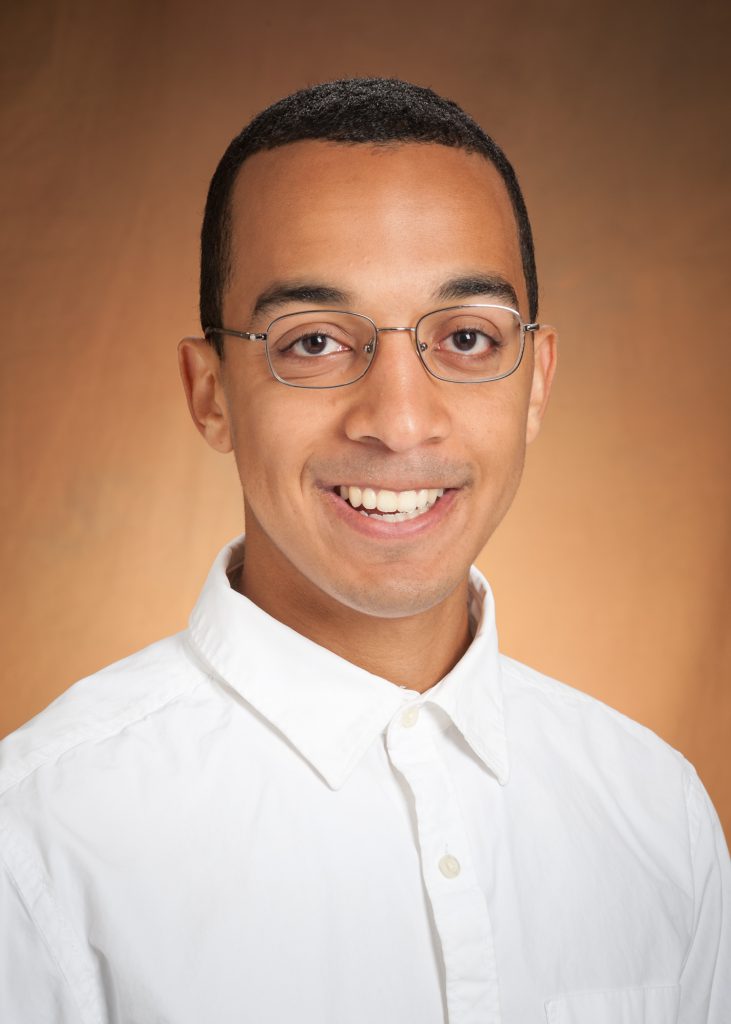
We interviewed quantitative methods in education (QME) PhD student Amaniel Mrutu about his research interests and what brought him to the Educational Psychology department.
What are your research interests?
I am interested in examining reliability and the measurement of students’ mathematics abilities.
How did your path lead to the Department of Educational Psychology and your particular major?
I started out college pursuing a bachelor’s degree in Electrical Engineering. During my junior year, I began tutoring math and found greater fulfillment explaining math concepts in an interpersonal capacity. This realization was gradual and eventually became a pivotal force in my decision of switching majors to Mathematics Education. I greatly enjoyed my time in this undergraduate program and was recommended to the McNair Scholars Program by one of my education professors. Unfortunately, due to the sparsity of course offerings for a specific class and limited remaining financial aid, I could not expect to complete my studies in Mathematics Education by any straightforward path given the time constraint. After considering my options, I switched majors to ultimately graduate with a Bachelor of Science in Statistics. I also attained minors in Mathematics and Computer Science from the culmination of coursework in my earlier major choices. For graduate school, I sought a program that incorporated statistics into an educational context which is why I applied and accepted admission to the University of Minnesota’s Quantitative Methods in Education PhD program.
What surprised you along the way?
The test development process. When I took the ACT, I viewed it as a consumer mainly interested in getting a good score for college admissions. The intricacies of the GRE (e.g., adaptive testing) were also unbeknownst to me when I took this test to apply for graduate school. I have begun demystifying the test development process in the QME program and find myself surprised by how many steps are involved in creating tests associated with high-stakes decisions.
What is something you’ve most enjoyed about your experience?
I enjoyed attending the 2019 American Educational Research Association (AERA)/National Council on Measurement in Education (NCME) conference in Toronto, Canada and gained valuable experience for framing future presentations of my own research.
What is most exciting about your work?
I’m excited by how psychometrics can have a meaningful impact in students’ educational experiences.
How would you describe the student experience and what does that mean to you?
The student experience is a continual learning process. I like to learn from the mistakes of others, when possible, and take proactive measures to avoid ending up in similar pitfalls. Still, it’s very difficult to avoid mistakes all together. Part of my student experience is viewing mistakes as an opportunity for reflection to learn from the situation and improve my decision-making process.
What has been most challenging?
Planning out a research study from start to finish has proved challenging because it requires anticipating the unknown. The iterative process of receiving feedback on work has been helpful for me to clarify the direction of my research efforts.
How have your professors helped you along the way?
Dr. Ernest Davenport is my current advisor and has contributed to the research process by challenging me to consider alternative approaches to my proposed research questions. Dr. Michael Rodriguez, who founded the Minnesota Youth Development Research Group (MNYDRG) and teaches a course on survey design (EPSY 5244), piqued my interest in learning more about how to analyze data from surveys. Through MNYDRG, I have gotten a general idea about the research interests of peers and gained access to survey data for my current research.
What would you like prospective students to know?
Before applying, review the work of QME faculty members and select 2-3 professors that could potentially be a good fit as your advisor.
How has your cohort helped you along the way?
One of the students in my cohort started QME Brown Bag which is a student-led meeting that occurs approximately once per month. The organization provides a platform for students to share research they are currently working on and lead a discussion with peers about the future direction of their work. I presented preliminary findings on the reliability of scales measuring social and emotional learning (SEL) during Fall 2019 and received constructive feedback that will be incorporated into my paper presentation for the 2020 AERA conference.
What are you looking forward to with graduation?
I’d appreciate the opportunity to be a professor in a college or university setting.
How do you plan to use what you are learning/your degree?
I am interested in finding simple and elegant ways of teaching psychometrics concepts and collaborating with organizations on issues of educational equity.
Any additional information you would like people to know?
An additional aspect of psychometric research is ethics. It’s important to understand how the implications of our research could help or harm society. I’ll conclude with a question for further reflection on this topic: How can we be intentional about maximizing the benefits and minimizing the risks that can be derived from our studies?



